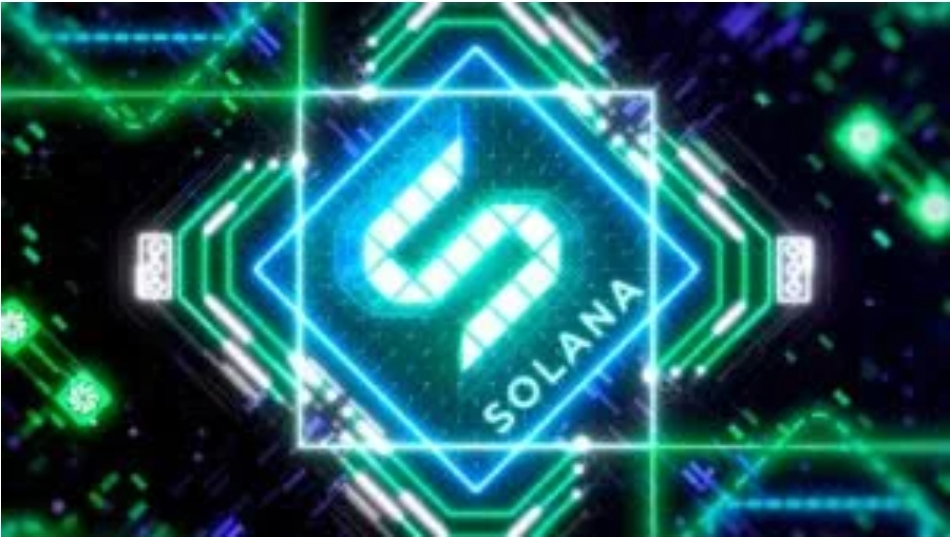There is a crypto currency or one can say technology that is lately getting a few headlines, and perhaps merits some evaluation.
Gambling on sports teams’ performance out of season makes little sense, and neither does gambling on Ethereum (CCC:ETH-USD rivals that haven’t made it out of the testing phase.

Rather than bet on Solana (CCC:SOL-USD right out of the gates, your best bet is to let the crypto ecosystem reveal its hand before committing to any “Ethereum-killers.”
Solana is focused on high performance, high scalability and global usability. And in many of those regards, it is extremely impressive.
But, because it is still in the testing phase, there are plenty of risks to mind when investing in Solana.
Solana’s Advantages Over Ethereum
Solana’s technology renders it more than capable of carrying out its mission of mass adoption, if and when it makes it out of the testing phase. As far as speed goes, Solana is extremely capable. It boasts 65,000 transactions per second (TPS, which makes Ethereum’s meandering 15 TPS pale in comparison.
Why is that important? Because, if a blockchain wants to have practical, real-world applications, speed is essential. Nobody wants to wait for a transaction to go through, either online or in person.
Solana’s technological capabilities also extend to its 400 millisecond block times and quick block finality — the length of time before a transaction is essentially irreversible.
Advertisement
In a retail setting, for example, imagine standing at the cash register and waiting several seconds, or minutes, for an Ethereum transaction to be finalized. Contactless payments via debit card take half a second or less, for comparison. In this way, Ethereum lags significantly behind even current standards.
Solana’s transactions occur and are finalized more quickly than existing payment processing technology.
Waiting for an Ethereum transaction in a real-world setting isn’t feasible.
Also, buying a coffee for a few dollars with ETH could wind up costing you upwards of $50 depending on network congestion. These fees, known as “gas fees” are paid to those responsible for running the Ethereum network to compensate them for their time and energy.
Solana has an average transaction fee of 0.25 cents. This is because it utilizes technological innovations that set it apart from Ethereum and makes it not only faster, but more secure.
But what good is being fast if Solana isn’t even running in the blockchain race? Ethereum’s growing mainstream adoption will only eclipse Solana, and other potential Ethereum-killers, the longer these other altcoins take to debut.
Ethereum’s exorbitant gas fees don’t pose an immediate threat to its market dominance, because no other cryptos have demonstrated themselves in the ring yet. Ethereum only grows more prevalent while Solana works on getting its technology into the wild.
The Best Technology Doesn’t Always Win
In the history of technology, however, the most innovative products and services don’t always dominate the competition.
The best brands, not technology, usually survive.
In the 1970s and 1980s, Betamax lost a long and drawn-out battle to its inferior competitor, VHS.
Betamax tapes were smaller, produced better colors and footage could be navigated much more quickly than VHS tapes.
Why did VHS win the battle?
Widespread adoption.
VHS tapes were longer tapes and cheaper to obtain. JVC also opted to refrain from patenting their invention.
Their inferior quality was overlooked, because quality was the less important factor to consumers. And this led to more people getting their hands on VHS tapes than Betamax tapes.
Solana could find itself in Betamax’s shoes.
If Solana and Ethereum Were Automotive Brands
Let’s compare blockchains to cars for a moment.
Ethereum is currently a gas guzzler. It has widespread adoption and the number of developers flocking to Ethereum is growing rapidly. Soon, when it transitions to using a more efficient consensus algorithm, it will be some kind of hybrid. Maybe somewhere down the line it will be a full-on electric vehicle.
Electric cars have been here for some time now, but those that run on gas still make up the majority of cars on the road. Over 99% of cars on the streets today run on gasoline, to be more precise. Hybrids and electric vehicles are becoming more prevalent over time, but an electronic-dominated automotive market is still a long ways off.
If this analogy holds, adoption of a new, technologically-superior blockchain will happen, but not anytime soon. And in the meantime, Ethereum has plenty of time to improve everything about itself before we get close to the EV-equivalent point in time with regard to blockchain technology.
The Bottom Line on Solana Crypto
For this reason, we can’t recommend diving into Solana’s crypto space. At least not yet.
Keep your eye on Solana in the coming months, but we recommend you keep your finger off the trigger.
There are too many “superior” competitors to Ethereum to make a reasonable guess at who will come out on top in the end.
We can certainly envision a future where Ethereum and Solana both co-exist in the presence of competition. But, we believe Ethereum’s current chances of long-term survival far outweigh Solana’s chance at breaking into the existing market.
Ethereum just has too much of a hold on the market and too much “brand” recognition, thanks to its early entry into the world of smart contracts and its enormous, varied ecosystem.
A hybrid to consider is Polygon (CCC:MATIC-USD). Polygon works within the Ethereum system to extend its capabilities and scalability.
Polygon makes Ethereum into a more efficient hybrid of technologies. And it’s easier to persuade someone to pick up something new but slightly familiar, than to transition to an entirely new technology.
People buy hybrid vehicles because they can run on gas, which is familiar, as well as electricity. People and developers can embrace Polygon because it incorporates Ethereum, which is familiar.
Original article by Luke Lango
VivoMix make’s available articles such as this for reader interests and entertainment. We don’t recommend any investment whether implied or suggested. Keep in mind that investments of any kind involve risks.




